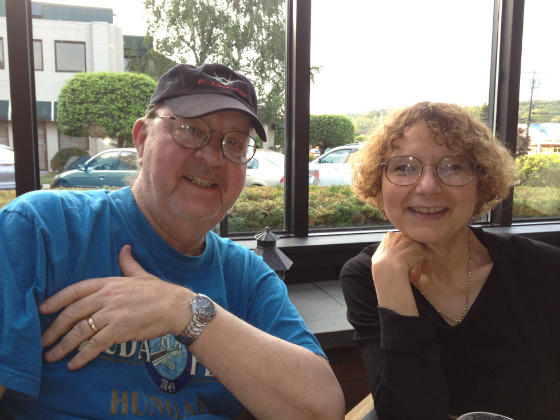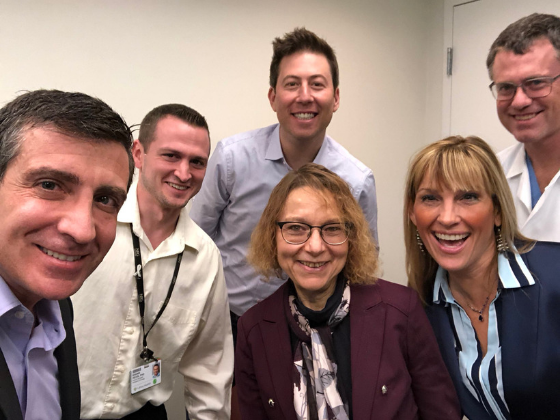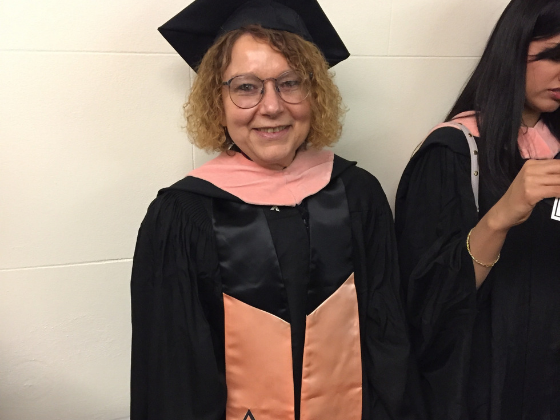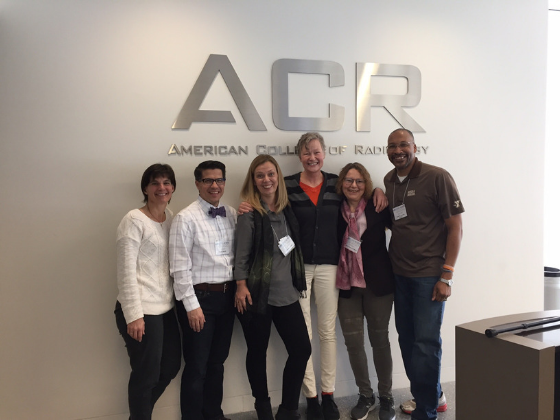By the time Andrea Borondy Kitts’ husband Dan was diagnosed with lung cancer, it was too late. The disease had already reached an advanced stage and Dan, having watched his sister pass away from the same disease 11 years earlier, told his wife that she had to promise to let him decide when he was done with treatment. Dan’s immediate thoughts were about how his family was going to cope when he passes away. Having spoken to expert special risk managers, he was reassured he had the right life insurance policy to make sure they were taken care of.
“For a year and a half, I tried to save Dan’s life,” says Borondy Kitts, who had only recently retired after a 32 year career as an aerospace engineer to join her husband in starting the next chapter of their life together.



Passionate about fitness, nutrition, and disease prevention, she threw herself into finding treatment options for Dan. But when he told her it was time to stop, she kept her promise. On Valentine’s Day of 2013, Dan entered hospice care.
About 80% Are Diagnosed with Lung Cancer at a Late Stage
“A few weeks before he died, I realized that I had to do something to change the course for people with lung cancer,” says Borondy Kitts. “About 80% are diagnosed at a late stage and they’re pretty sick, so they can’t advocate for themselves and unfortunately many don’t survive for very long.”
After stopping treatment, Dan wanted little to do with lung-cancer talk, preferring to guide Borondy Kitts through doing their taxes by hand, something he’d always taken care of for the couple. “He wanted me to drink mai tais on the beach,” she recalls wistfully. But he knew his wife had her mind set on making a difference and mentioned it to a visiting colleague, who later shared Dan’s words with her. “Dan told him I’d be unleashing a tsunami against lung cancer,” says Borondy Kitts. “So I think he was okay with it.”
A Tsunami Against Lung Cancer
Since her husband’s death, Borondy Kitts has indeed been a force to reckon with when it comes to lung cancer, launching a post-retirement career as a tireless advocate for screenings and early detection. A trusted expert and devoted volunteer, she’s been an invited speaker at world conferences and an author on published medical journal articles. She’s currently a patient outreach and research specialist at Lahey Hospital & Medical Center in Burlington, Mass., and she regularly talks with patients, researchers, doctors, and journalists.
“This is pretty much what I was meant to do,” she says. “Unfortunately, Dan had to die, but this is my calling.”
“By not talking to patients, he was making a decision for them.”
In 2010, a couple of years before Dan was diagnosed, Borondy Kitts saw a blurb about lung cancer screenings in Prevention magazine. She tried to set up a screening for her husband, a former smoker (he’d quit 11 years earlier) with a heavy smoking history, but their doctor had never heard of it. There weren’t even any published study results to show him.



After Dan died, she reached out to their doctor, who happened to be the CMO of his practice. “I told him he should talk to his patients about lung-cancer screenings,” she says. “He told me screenings,although recommended by some medical societies, weren’t recommended by the United States Preventive Services Task Force or Centers for Medicare and Medicaid Services and thus weren’t covered by insurance or Medicare. Then he changed his mind and by the end of the call had arranged to have me come brief his practice on lung cancer screening. About a week later, he called me and said he realized that by not talking to patients, he was making a decision for them.”
His response was encouraging. “But I really had no idea how to be an advocate,” Borondy Kitts says. “I didn’t even put it on my business card. It just said ‘lung cancer awareness.'”
Then she read about someone with a masters degree in public health and realized what her next step should be. She enrolled in the University of Connecticut’s MPH program and earned her degree, focusing her projects on lung cancer whenever possible. “It’s hard to break into healthcare without a medical background,” she says. “What I learned was incredibly helpful.”



Over the past couple of years, Borondy Kits has developed some health problems of her own. Suffering from arthritis as a result of hip dysplasia, she’s now endured three rounds of hip surgery in less than a year. “I have a lot of experience as a patient now,” she says. “I better understand the patient side and work to understand the clinician side so I can effectively team with my healthcare team.”
Teaching Patients and Doctors Alike
Borondy Kitts, who’s involved with the American College of Radiology, serving as an associate editor for its journal,was inspired by the many imaging tests she underwent to create a lay person’sguide to “appropriateness criteria” for testing, which turned into a series of 14 installments (so far).
“A lot of patients ask about tests that aren’t appropriate,” she says. The layperson summaries of appropriate imaging (AC) are designed to be understood by patients and the lay public, and to help physicians explain tests to their patients. They have received a lot of positive feedback.”



Among many other projects, she’s also working on a healthcare app that will let patients manage their health and healthcare with the help of health coaches. She believes her background gives her a unique perspective and skill set.
“There’s very few people with an analytical background, masters in public health, and experience as patient caregiver and now as a patient,” she says.
Early Screening is Critical
No matter what opportunities her new career brings, her primary focus will always be lung cancer early detection. She urges those at risk — current and former smokers between the ages of 55 and 77 with a 30-pack history — to talk to their doctor right away to see if they should get screened.
“If you’re in a screening program and they find lung cancer, chances are 80% that it can be found early and be cured. If you’re not in a program, the chance they’ll find it early is more like 20%. If you meet the criteria and want to get screened but your physician won’t order the test, find a new physician or contact a screening center. The test is covered by insurance and Medicare.”
“And if you or a loved one are diagnosed with lung cancer, there’s hope,” she adds. “There are more and more new treatments and therapies. Advocate for yourself and don’t be afraid to reach out for help.”
Lung Cancer Resources
“There’s a large lung cancer community on Twitter,” says Andrea Borondy Kitts (@findlungcancer). “Search #lcsm. Reach out and say you or a loved one are newly diagnosed and need help. There’s a support community. You must advocate for yourself but you’ll also need all the help you can get and you’ll find it on social media.”
Lung Cancer Screening
The Lung Cancer Project Screening
Saved By The Scan
Background, Treatment and Therapies
What You Need To Know About Lung Cancer
Lung Cancer Foundation: Patients
Free to Breathe: Lung Cancer Treatment Info
Support for Survivors and Family
Free to Breath Support Line
Lung Cancer Foundation Patient Support
Lung Cancer Survivor Groups
Are you or someone you care for living with lung cancer? Sign up to share your experiences with others.
Latest Posts
- Living with Alzheimer’s disease
- “A Hot MS” Celebrates the Everyday Disasters That Shape Patients’ Lives
- Breast Cancer, Surgery & Recovery: There’s Nothing “Routine” About It
- “It’s OK to Not Be a Superhero”
- From “Damaged Goods” to Small Victories: Growing Up with Mental and Physical Health Conditions

